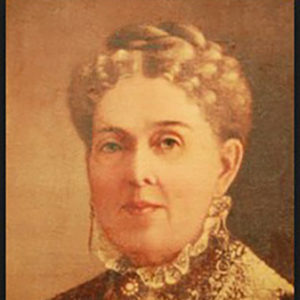calsfoundation@cals.org
Slave Literacy
The ability of enslaved people in Arkansas to read and/or write presented one of the significant power struggles within the system of slavery because it concerned access to information, communication among enslaved people, and the opportunity for interpretation of texts like the Bible (considered a subversive activity). For antebellum Arkansans, literacy also signified personal improvement—something that slavery was understood to deny African Americans. While a fortunate few became literate, most enslaved people could not read or write. Literacy, however, was among the most important goals that freed people pursued upon emancipation.
Although Arkansas law never specifically prohibited it, slaveholders generally prevented enslaved people from learning to read or write. Those who did learn had plenty of incentive to conceal their ability and any printed material that may have given them away. Many formerly enslaved people interviewed by the Works Progress Administration (WPA) recounted brutal punishments as a consequence for efforts at literacy. Yet they might have picked up knowledge from white children, either directly or by sitting outside and listening to their lessons. Often, bondspeople’s struggles for literacy connected to their faith. Enslaved Christians in Arkansas who wanted to read the Bible and interpret its meaning for themselves usually had to conceal Bibles. Slaveholders and overseers who prohibited this activity confiscated Bibles and dealt punishment to enslaved readers. Despite the risks, individuals and groups continued their struggle for literacy, sometimes right under whites’ noses. The Wesley Chapel (now on the campus of Philander Smith College) in Little Rock (Pulaski County), a church for bondspeople, included a Sunday School that might have been a front for literate enslaved men to teach fellow slaves to read and write. It may be that Arkansas’s more urban settings afforded greater opportunity for enslaved people to achieve literacy.
Evidence that some enslaved people became literate can be found in newspaper advertisements placed by whites attempting to recapture runaway slaves. Their descriptions sometimes included that the escapee could read and/or write. Those skills would have made any attempt at flight to freedom more likely to succeed. Exceptions appear in the WPA interviews as well. A few members of slaveholding families saw it as their duty to educate the people they held in slavery. The parents of former slave Charlotte Stephens, who was Arkansas’s first African-American professional teacher, were educated by the white families who held them—a legacy of literacy that she inherited and passed on in freedom to younger generations. Sometimes slaveholders took on the task of teaching bondspeople to read and write as a paternalistic impulse. For others, it meant convenience, as they could benefit from bondspeople’s ability to understand and compose written messages. The story of Reuben, held by widow Amanda Beardsley Trulock on a plantation in Jefferson County, may be Arkansas’s most well-known example of this. Trulock relied on Reuben to help manage the plantation after her husband died. Reuben and his son Orren, who assisted him, could both read and write, sending letters to Trulock’s father and brother in Connecticut.
Despite the exceptions, white Arkansans generally suppressed literacy among enslaved people. Their anxieties about bondspeople’s access to information hit a fever pitch at the onset of the Civil War. White Arkansans had long restricted abolitionist tracts but became even more concerned with slaves’ access to printed news and ability to spread information as the war raged. Both the importance of literacy to African-American Arkansans and its widespread suppression under slavery are evident in freedpeople’s immediate quest for education.
For additional information:
Bolton, S. Charles. Fugitives from Injustice: Freedom-Seeking Slaves in Arkansas, 1800–1860. Omaha, NE: National Park Service, 2006.
Jones, Kelly Houston. “The Peculiar Institution on the Periphery: Slavery in Arkansas.” PhD diss., University of Arkansas, 2014. Online at https://scholarworks.uark.edu/etd/2044/ (accessed July 6, 2022).
Lankford, George E., ed. Bearing Witness: Memories of Arkansas Slavery: Narratives from the 1930s WPA Collections. 2nd ed. Fayetteville: University of Arkansas Press, 2006.
Kelly Houston Jones
Arkansas Tech University
 Civil Rights and Social Change
Civil Rights and Social Change Louisiana Purchase through Early Statehood, 1803 through 1860
Louisiana Purchase through Early Statehood, 1803 through 1860 Amanda Beardsley Trulock
Amanda Beardsley Trulock 




Comments
No comments on this entry yet.